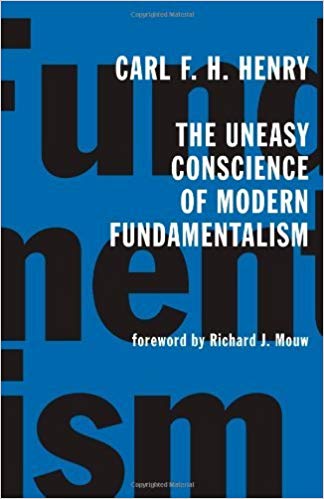A Brief Book Summary from Books At a Glance
by Steve West
About the Author
Carl F. H. Henry was one of the key thinkers and theologians of the evangelical movement in the 20th Century.
Table of Contents
1 The Evaporation of Fundamentalist Humanitarianism
2 The Protest Against Foredoomed Failure
3 The Most Embarrassing Evangelical Divorce
4 The Apprehension Over Kingdom Preaching
5 The Fundamentalist Thief on the Cross
6 The Struggle for a New World Mind
7 The Evangelical “Formula of Protest”
8 The Dawn of a New Reformation
Summary
Chapter 1: The Evaporation of Fundamentalist Humanitarianism
Fundamentalists often point to the failure and embarrassment of religious modernism, but that failure does not remove the shortcomings of fundamentalists. Non-evangelicals accuse fundamentalists of failing to have a social program that combats evils in a practical way. The groups differ on orthodox doctrine and supernaturalism, but also on social activism. Too often, evangelicals criticize the activism of liberal churches, but do not seem to do anything in their turn. There is also a distinct silence in evangelical pulpits about many issues of social justice. Fundamentalism was at first concerned with doctrinal distinctions; there is, however, a distinct need to apply theology in social ethics.
In its broadest sense, humanitarianism simply refers to caring about human flourishing, and Christianity has always been a leading force in humanism. Today, humanitarian concerns seem foreign to fundamentalism, and the slack has been picked up by secularists. Fundamentalists tend to have a strong view of sin, but they direct their gaze to individual sin rather than social sin. An additional complication is that many of the sins fundamentalists have focused on may actually be cultural taboos rather than moral wrongs. Developing a personal ethic cannot be done effectively in isolation from the concerns of social justice. Some outside of fundamentalist circles believe that the evangelical view is too pessimistic about human nature to actually allow for a workable social ethic. . . .
[To continue reading this summary, please see below....]The remainder of this article is premium content. Become a member to continue reading.
Already have an account? Sign In
